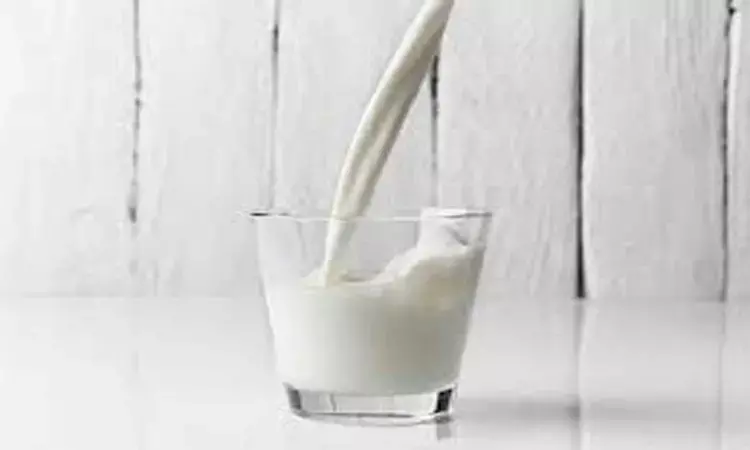- Home
- Medical news & Guidelines
- Anesthesiology
- Cardiology and CTVS
- Critical Care
- Dentistry
- Dermatology
- Diabetes and Endocrinology
- ENT
- Gastroenterology
- Medicine
- Nephrology
- Neurology
- Obstretics-Gynaecology
- Oncology
- Ophthalmology
- Orthopaedics
- Pediatrics-Neonatology
- Psychiatry
- Pulmonology
- Radiology
- Surgery
- Urology
- Laboratory Medicine
- Diet
- Nursing
- Paramedical
- Physiotherapy
- Health news
- Fact Check
- Bone Health Fact Check
- Brain Health Fact Check
- Cancer Related Fact Check
- Child Care Fact Check
- Dental and oral health fact check
- Diabetes and metabolic health fact check
- Diet and Nutrition Fact Check
- Eye and ENT Care Fact Check
- Fitness fact check
- Gut health fact check
- Heart health fact check
- Kidney health fact check
- Medical education fact check
- Men's health fact check
- Respiratory fact check
- Skin and hair care fact check
- Vaccine and Immunization fact check
- Women's health fact check
- AYUSH
- State News
- Andaman and Nicobar Islands
- Andhra Pradesh
- Arunachal Pradesh
- Assam
- Bihar
- Chandigarh
- Chattisgarh
- Dadra and Nagar Haveli
- Daman and Diu
- Delhi
- Goa
- Gujarat
- Haryana
- Himachal Pradesh
- Jammu & Kashmir
- Jharkhand
- Karnataka
- Kerala
- Ladakh
- Lakshadweep
- Madhya Pradesh
- Maharashtra
- Manipur
- Meghalaya
- Mizoram
- Nagaland
- Odisha
- Puducherry
- Punjab
- Rajasthan
- Sikkim
- Tamil Nadu
- Telangana
- Tripura
- Uttar Pradesh
- Uttrakhand
- West Bengal
- Medical Education
- Industry
Dairy consumption does not prevent fractures in menopausal women: SWAN study

A new study has revealed that dairy consumption does not protect against nontraumatic bone fracture or improve bone mineral density in menopausal women.
Ohio (May 26, 2020)--Dairy products provide more bone-beneficial nutrients than any other food group. Growing up, children are often encouraged to drink milk. That's because dairy products contain more than 12 essential nutrients that promote bone mineralization, including calcium, phosphorus, vitamin D, and high-quality protein.
Researchers in a new study based on data from the Study of Women's Health Across the Nation (SWAN) have found that during the menopause transition, when bone loss is accelerated, dairy products offer little benefit in preventing bone mineral density loss or fractures.
The findings of the study results have been published in Menopause, the journal of The North American Menopause Society (NAMS).
Unfortunately, as women enter the menopause transition, bone loss accelerates and may lead to osteoporosis. According to SWAN data, this bone loss is not slowed down by the consumption of dairy products nor is fracture risk mitigated.
The new study specifically looked at the effect of dairy intake on femoral and spine bone mineral density. It is one of the few studies dedicated to examining how dairy consumption affects a woman's risk of bone loss and fractures across the menopause transition. Because two of the greatest risk factors for osteoporosis--age and sex--are beyond a woman's control, there is an increased focus on possible modifiable risk factors to slow this irreversible, age-related, progressive, degenerative skeletal disease that makes a woman more susceptible to bone fractures. Women are at greater risk for osteoporosis than men, and the risk increases significantly as women age.
Study results appear in the article "Dairy intake is not associated with improvements in bone mineral density or risk of fractures across the menopause transition: data from the Study of Women's Health Across the Nation."
"This study adds to the existing, albeit inconsistent, data suggesting a lack of benefit from dairy intake on bone mineral density and fracture risk. However, there are many other health benefits of a Mediterranean-type diet rich in fruits, vegetables, and whole grains, as well as lean protein such as fish and low-fat dairy. In addition, regular weight-bearing exercise, such as walking or jogging, can help maintain bone strength, and activities that improve strength and balance, such as yoga and tai chi, may help prevent falls," says Dr. Stephanie Faubion, NAMS medical director.
For further reference log on to:
http://www.menopause.org/docs/default-source/press-release/dairy-consumption-ineffective-in-preventing-age-related-bone-loss-or-fractures.pdf
Dr Kamal Kant Kohli-MBBS, DTCD- a chest specialist with more than 30 years of practice and a flair for writing clinical articles, Dr Kamal Kant Kohli joined Medical Dialogues as a Chief Editor of Medical News. Besides writing articles, as an editor, he proofreads and verifies all the medical content published on Medical Dialogues including those coming from journals, studies,medical conferences,guidelines etc. Email: drkohli@medicaldialogues.in. Contact no. 011-43720751


